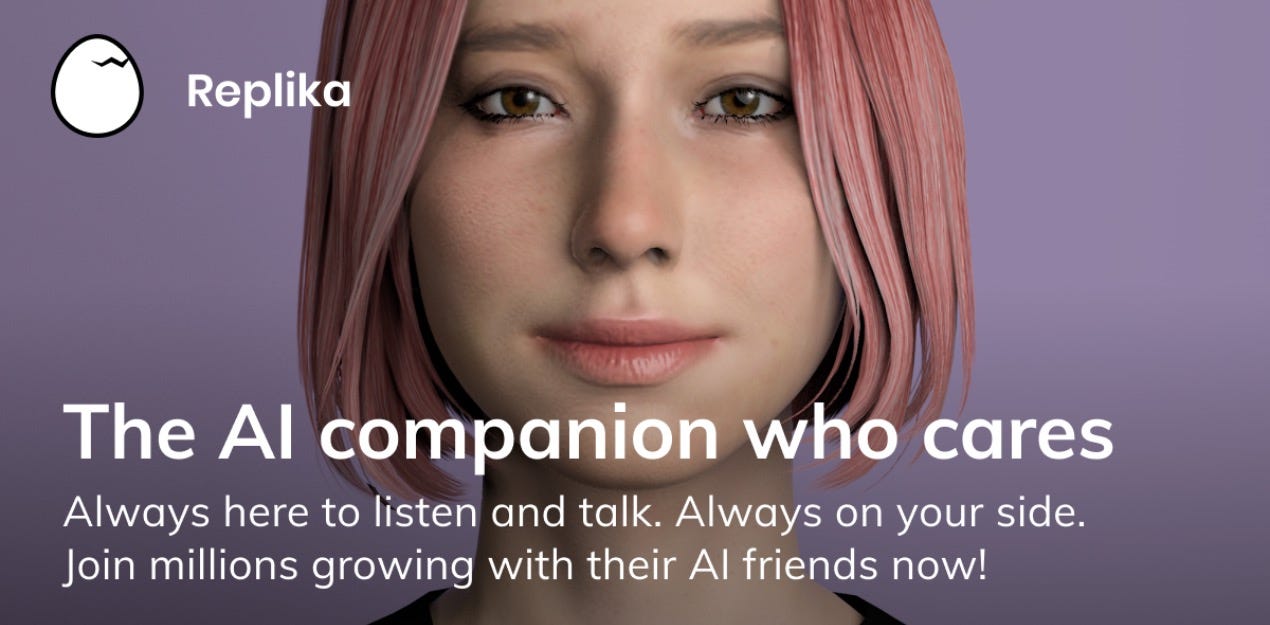The intersection of luxury fashion and artificial intelligence
Going from tech-curious to tech-literate can be simple if you have access to the right resources. Here are some recent highlights to keep you informed:
Welcome to the new subscribers who have joined us since the last newsletter! Here are some recent highlights to keep you informed:
The intersection of luxury fashion and artificial intelligence
Earlier this week, Brunello Cucinelli launched a new AI-powered website to showcase the brand's philosophy and heritage. Users can ask questions and access related information about the brand.
Over the next year, Brunello Cucinelli plans to expand this AI integration into their e-commerce platform. The AI will suggest outfit combinations, offer styling advice and create product listings. According to Cucinelli, the aim is to ensure that the team is not afraid of AI, stating,
"People will remember this century because of AI”.
Although AI in luxury fashion is still in its early stages, interest is growing rapidly:
AI tools are gaining traction among retailers looking to personalise customer experiences and enhance product discovery. For instance, Zegna is experimenting with AI to improve its clienteling experience. The Zegna X configurator is an AI-powered tool that allows customers to personalise products with any combination of colors and fabrics.
There’s also an emerging category of pins and pendants equipped with digital AI personalities, making its way into fashion. For example, Coperni’s models, including Naomi Campbell, wore Humane (a wearable AI device) on the runway last September. Gucci has collaborated with Oura on a ring and Hermès is continuing its 10-year partnership with the Apple Watch.
AI companionship is no longer a theoretical concept
An analysis of one million ChatGPT logs found that one of the most popular uses of AI is for seeking emotional connection. This introduces new risks emerging from people’s relationships with AI.
AI's ability to mimic human charm and culture, along with its knack for identifying and catering to our preferences, creates a power imbalance. This raises concerns about meaningful consent in AI relationships, particularly for vulnerable individuals.
While AI has no inherent personality, it mirrors whatever users believe it to be - a phenomenon researchers call “sycophancy.” Research from Massachusetts Institute of Technology has found that those who perceive or desire an AI to have caring motives will use language that elicits such behaviour, creating an echo chamber of affection that can be highly addictive.
AI tools are being intentionally designed to be addictive, similar to social media platforms. This raises two questions:
What design choices are being used to create these addictive AI companions?
How will these addictive AI companions affect users?
A thought-provoking piece on “addictive” intelligence, the emerging risks and potential solutions.
You can now AI-clone yourself on Instagram:
Last week, Meta announced that it’s releasing a tool called AI Studio, designed to help users build virtual characters with personalised traits, interests, and personalities—possibly even based on themselves.
For creators, this means they can have a digital twin interact with fans through DMs. Individual users can design custom AI chatbots for entertainment or personal support, such as practicing how to ask for a raise or handle an argument with a friend.
Meta says AI Studio will allow users to control who their chatbots interact with and restrict certain topics. The policy prohibits users from creating chatbots that represent anyone other than themselves, as well as historical figures or anything hateful, explicit, or illegal.
Last September, Meta introduced AI chatbots loosely inspired by celebrities, including a fantasy role-play bot based on Snoop Dogg and a companion bot inspired by Kendall Jenner. However, these bots didn't gain much traction, and Meta has since discontinued them.
AI studio seems to be an evolution of those early experiments. There’s early evidence, through tools like Character AI, that users may find fully customisable AI bots more compelling.
What do you think?
If you liked reading this, feel free to click the ❤️ button on this post so more people can discover it on Substack 🙏
If you haven’t already, subscribe now to make sure you don’t miss out on any future newsletters.
Also, feel free to hit reply and ask me any questions you have about tech and I can include it in the next issue!
For regular content, you can follow me at:
If you know anyone else who you think would enjoy this content, you can share the newsletter from here:




